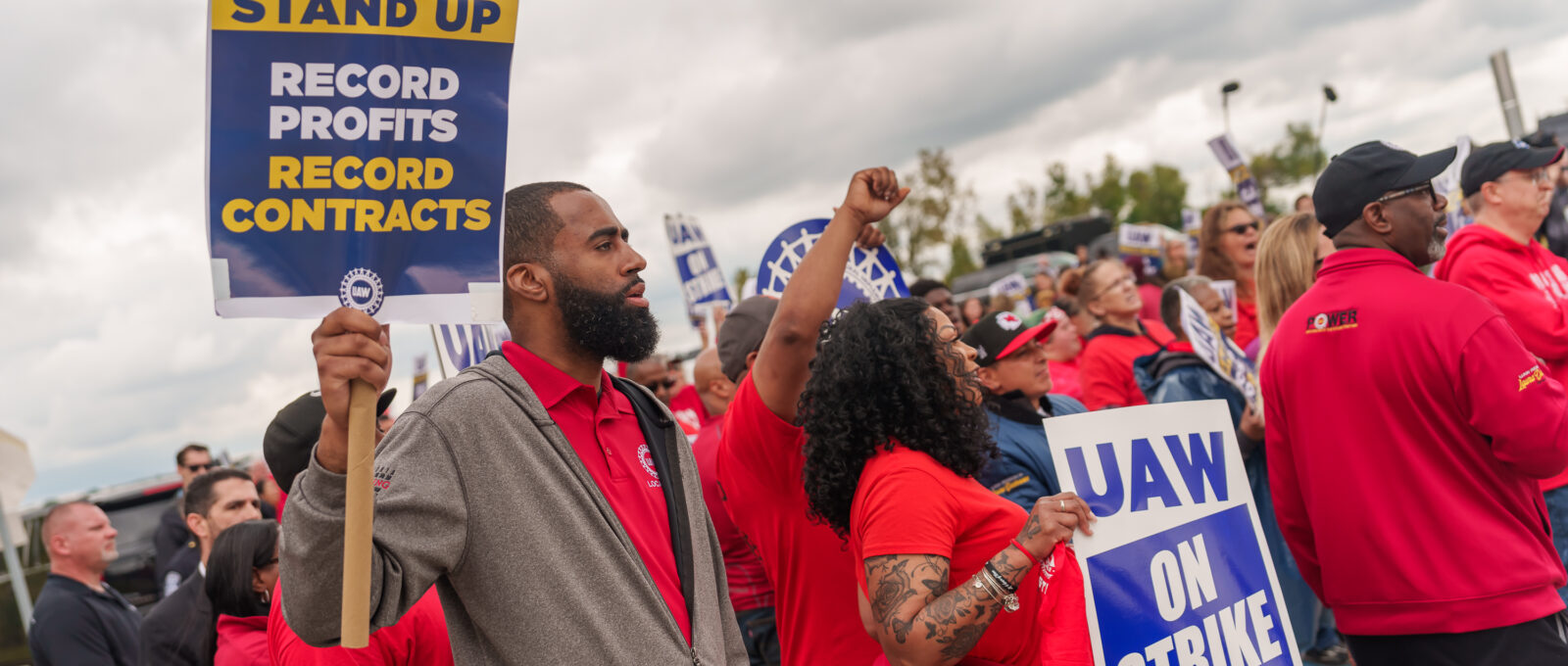Some called 2023 the year of the auto worker thanks to huge victories by the UAW. Despite these historic wins, our 2024 leaderboard shows a lack of progress from automakers in ensuring respect for the rights of workers. In fact, nearly half of automakers we studied demonstrated zero progress on addressing workers’ rights issues in their supply chains.
At our press event launching the 2024 leaderboard, Patrick Dexter from the UAW noted that for the most part, unionized companies score higher in the leaderboard overall. He argued that there’s no better solution to the environmental problems that plague the auto supply chain than to give a voice to the workers who work in facilities that emit pollution and produce hazardous waste.
He also reminded us of one of the origin stories of the US environmental movement: the solidarity that arose in Detroit between auto workers and community members who lived nearby auto manufacturing facilities, because they were all impacted by industrial pollution from auto manufacturing.
Building a cleaner and more equitable auto supply chain cannot be achieved without supporting workers. But nearly half (44%) of the automakers evaluated in 2023 and 2024 made no improvement at all on workers’ rights, and the average score among automakers improved by just 3 percentage points from one year to the next.
The only area where automakers showed marginal improvement was related to living wage commitments. In the 2023 edition of the leaderboard, none of the automakers assessed had made any kind of commitment to a living wage. In the 2024 leaderboard, Ford and Volvo are credited for adding explicit commitments to a living wage in their human rights policies, although neither company disclosed a specific method for calculating a living wage. BMW also became the only automaker to include a specific requirement in its supplier code of conduct for suppliers to pay employees a living wage.
In 2024, autoworkers are coming together across the US south to unionize Hyundai and Mercedes facilities, and anyone who cares about cleaner auto supply chains and a just transition should be supporting them. The UAW also has their eye on Tesla’s non-union facilities where workers have faced well-documented incidents of harassment and an unsafe work environment. Tesla is a leader overall in the leaderboard, ranking #3 in 2024, but #10 for workers’ rights.
With powerful worker organizing in the U.S. leading to big gains for workers of the Big 3 – it’s time for the whole auto industry to respect the rights of workers up and down the supply chain, not just in the facilities where cars are assembled. A recent study of the U.S. automotive manufacturing landscape found that the manufacturing of battery electric vehicles requires more labor hours than the manufacturing of internal combustion engine vehicles. That’s great news for US workers who hope to find living wages in the unionized US auto industry.
But a lot of the new jobs created will be in battery manufacturing, the most labor-intensive part of building an EV. Some automakers have attempted to create a tiered labor system separating their auto assembly workers and battery workers, even when their batteries are manufactured at companies wholly owned and operated by automakers themselves. But thanks to UAW’s 2023 strikes, important wins were achieved for these battery workers, whilst progress is also being made at the facilities of other battery manufacturing companies.
Automakers can support a just transition away from extractive internal combustion engine vehicles to clean electric vehicles by proactively supporting and ensuring respect for workers rights by their suppliers. A truly ‘clean’ auto supply chain would include fair wages and respect for workers’ rights from the factory all the way to the mine.
